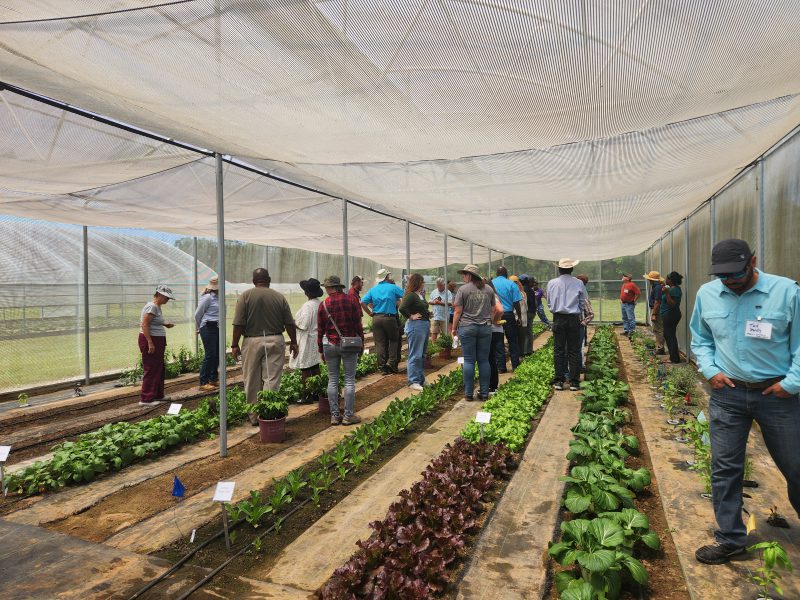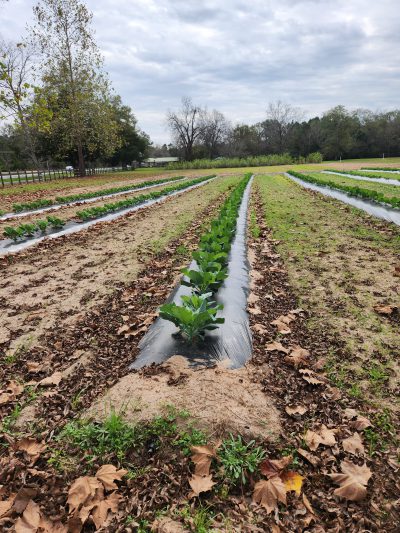Embarking on a farming journey can be an exciting and rewarding experience. However, it requires a solid understanding of key principles and practices to ensure success. Many times, failure is experienced when a person jumps headfirst into farming without having a clear understanding and vision for their farm plan. Farming is a business, and you should treat it as such. Where can you go for assistance with business planning aspect of your farming endeavor? You can always contact your local extension office to help you with the process and connecting you with the right agencies.
There are several factors that every beginning farmer should know, to ensure a strong foundation for a productive and sustainable farming venture.
–
Farming Entity
Finding the right type of farming entity that works for you is essential to set up your farm for future success. Farm business type varies based on legal and operational structure such as: Sole Proprietorship, Farm Corporation, Limited Liability Company (LLC), Cooperative (co-op), and Family Farms. In addition, Community-Supported Agriculture (CSA) is also a business model where consumers directly support a farm by purchasing shares or subscriptions in advance.
–
Property Appraisal
Property appraisal plays a crucial role in determining the value of farms, therefore, it’s important to note that farm appraisals require expertise and experience in evaluating agricultural properties. Seek professional appraisers, who specialize in farm and rural properties and can provide an accurate assessment based on the specific characteristics of the farm and the local market conditions. In Florida, property taxes can be assessed on working agricultural lands based on their agricultural value rather than their “highest and best use” thanks to the Greenbelt Law or Agricultural Exemption. More information on applying for the exemption can be found in the publication, How to Apply for a Greenbelt Agricultural Tax Assessment.
–
Environmental Assessments
Environmental assessments should be conducted to evaluate and manage potential environmental impacts associated with agricultural activities. These assessments aim to identify and mitigate or minimize impacts on natural resources, ecosystem, and human health. Environmental assessments for farms varies depending on the specific location, farming practices, and regulatory requirements. Farmers often work with environmental consultants, agronomists, or other experts to conduct these assessments and develop strategies for sustainable and environmentally responsible farming practices.
–
Farm Plan
A farm plan is a useful document that strategically outlines goals, objectives, and strategies for operating a farm efficiently and effectively. It serves as a roadmap to where you want to go in the future. A well-developed farm plan should serve as a reference and management tool to support decision-making, resource allocation, and the overall success of the farm operation.
–
Marketing and Branding
Branding is crucial in any successful venture. Creating a distinct brand identity that communicates the farm’s values, story, and products to consumers is relevant to a beginner farmer. An effective farm branding program can help differentiate your farm from competitors, build customer loyalty, and enhance market visibility. Marketing and branding should be an ongoing process that evolves over time. Many farms in Florida utilize the “Fresh from Florida” branding. This farm branding program, provided by the Florida Department of Agriculture and Consumer Services (FDACS), signifies your product is grown locally with the highest Florida standards.
–
Cost-Share Programs
Cost-share programs are valuable tools that give farmers the flexibility to make affordable innovative changes and improvements on their farm operations. In Florida, farmers can access cost share funds through FDACS, Water Management Districts, and USDA Natural Resources Conservation Service (NRCS) and Farm Service Agency (FSA). Florida state-based cost share programs in the Panhandle can be found by contacting the NW Florida Water Management District or the Office of Ag Water Policy with FDACS. Each of these entities have specific requirements prior to enrollment in these programs.
Likewise, if you wish to partake and benefit from the USDA cost share programs, there are a few steps you need to take before your transition. The first stop will be your local Farm Service Agency (FSA) office, where they will provide you with a farm number, which is a requirement. The FSA cost share programs offer aids to start and grow your farm operation. Examples of these aids are disaster assistance, safety net price support, farm loans, and conservation programs. The Natural Resources Conservation (NRCS) is another entity that provides financial and technical assistance to farmers as well as easement programs, for planning and implementing conservation practices on working lands.
Starting a farming journey requires a solid foundation of knowledge and an understanding of the key aspects of farming. By familiarizing yourself with the farming environment, you can set yourself up for success as a beginner farmer. Remember that farming is a continuous learning process, and seeking advice from experienced farmers, attending workshops, and staying updated with industry developments will further enhance your skills and improve your chances of achieving your farming goals.
For more information on any of these topics see the links below or contact your local extension office.
–
Links to useful resources:
Keys to Successfully Choosing Enterprises That Suit Your Small Farm
–
UF/IFAS Small Farms – Beginning Farmer website
–
Fresh From Florida Logo Incentive Program
–
How to Apply for a Greenbelt Agricultural Tax Assessment
–
Find Your USDA Service Center
–
USDA Farm Loan Programs
–
USDA Farmers.gov website
- Farming Your Hobby into a Business - May 2, 2025
- FAMU Sugarcane Field Day Proves Interest is Still High for Local Farmers - November 15, 2024
- Thinking About Starting a Farm? Essential Knowledge for Beginner Farmers or Ranchers - June 16, 2023


